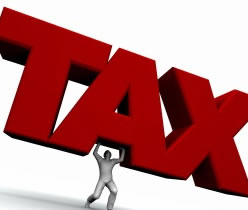GRA targets digital economy to boost tax revenue

The Ghana Revenue Authority (GRA) has announced plans intended to expand revenue collection through its digital space in the country.
According to the Authority, many businesses operating on digital platforms currently evades taxes, making the sector a key area for broadening the tax net.
This move follows the rising calls from tax experts for the government to explore a more accessible and practical revenue sources. They pressed the significance of implementing measures to ensure that more individuals and businesses meet their tax obligations.
The Commissioner General of the Ghana Revenue Authority (GRA) Anthony Sarpong, has indicated that the Authority is preparing to take action in the digital space.

He said, “Businesses instead of doing brick and mortar are running in the digital space, where buyers and sellers do their trade. We do have many businesses which are also showing up on other online places.
Adding that, “In Ghana today, if you want to find several service providers, you go to Instagram and you find them.
The Ghana Revenue Authority has commenced a program which is aimed at integrating the digital economy into the tax system, recognizing that as more businesses shift online, this sector will become a key source of future revenue. The goal is to make sure everyone participating in business, especially in the digital space, is captured within the tax network.
Experts have also emphasized the enforcement of property rate collections at the local assembly level and called for greater attention to the digital economy. This includes online businesses, social media-based enterprises, and app-driven services, many of which function with limited tax oversight.
The Ghana Revenue Authority is proactively adapting to the evolving business landscape to secure sustainable revenue streams in the digital age.

 GRTCC suspends planned ‘August 8’ 20% public transport fare increase
GRTCC suspends planned ‘August 8’ 20% public transport fare increase  State funeral for helicopter crash victims set for August 15 at Black Star Square
State funeral for helicopter crash victims set for August 15 at Black Star Square  Black Queens rank 67th in FIFA ranking despite WAFCON performance
Black Queens rank 67th in FIFA ranking despite WAFCON performance